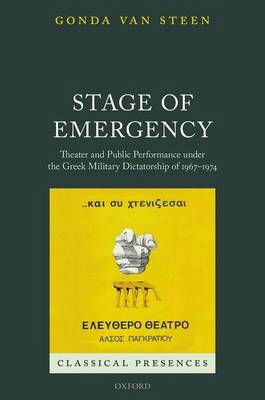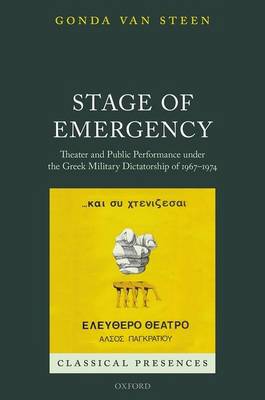
- Retrait gratuit dans votre magasin Club
- 7.000.000 titres dans notre catalogue
- Payer en toute sécurité
- Toujours un magasin près de chez vous
- Retrait gratuit dans votre magasin Club
- 7.000.0000 titres dans notre catalogue
- Payer en toute sécurité
- Toujours un magasin près de chez vous
Stage of Emergency
Theater and Public Performance Under the Greek Military Dictatorship of 1967-1974
Gonda Van Steen
146,95 €
+ 293 points
Description
This volume offers a critique of cultural and intellectual life in Greece during the dictatorship of 1967-1974, discussing how Greek playwrights, directors, and actors reconceived the role of culture in a state of crisis and engaged with questions of theater's relationship to politics and community. In the early 1970s, several bold new plays appeared, resonating with the concerns of Greek public and private life. The reinvigorated Greek stage displayed an extraordinary degree of historical consciousness and embraced revisionist cultural critique as well, leading to a drastic re-shaping of the Greek theatrical landscape. Stage of Emergency is the first study to focus on these particular theatrical developments of the so-called junta era, shedding light not only on the messages and impact of the plays themselves, but also on the politics of culture and censorship affecting the Greek public during this period.
Spécifications
Parties prenantes
- Auteur(s) :
- Editeur:
Contenu
- Nombre de pages :
- 416
- Langue:
- Anglais
- Collection :
Caractéristiques
- EAN:
- 9780198718321
- Date de parution :
- 18-02-15
- Format:
- Livre relié
- Format numérique:
- Genaaid
- Dimensions :
- 226 mm x 147 mm
- Poids :
- 607 g

Les avis
Nous publions uniquement les avis qui respectent les conditions requises. Consultez nos conditions pour les avis.






